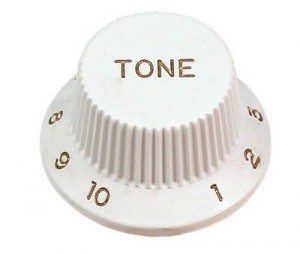Following our mocks, I made a list of avoidable errors that I come across again and again and again. Here are some of them, alongside some links and suggestions to help you sort them out.
PROBLEM 1 = Mis-read the question
SOLUTION = Underline the key words in the question. Still confused? Re-write the question in your own words to clarify what you’re being asked. If you still don’t understand the question, try to avoid it. Pick a different one if possible.
PROBLEM 2 = mis-use apostrophes
SOLUTION = learn these simple rules. Use apostrophes:
1. to show that something BELONGS to someone (possessive nouns)
2. to show a letter is missing because you squished 2 words together (contraction)
NEVER USE APOSTROPHES TO MAKE A WORD PLURAL! If the word is already plural, add the apostrophe after the s (no need to have two s’s in a row!). eg “The three dogs’ bowls were empty” is better than “The three dogs’s bowls were empty”
NEVER USE APOSTROPHES WITH HIS / HERS / ITS – ownership is already clear e.g. “It’s not his, it’s hers” – here it’s means it is
e.g. “Its only difficulty as an organisation is that it’s too trusting” – here the difficulty belongs to it (the organisation) but for ITS you don’t need to indicate possession. Only use an apostrophe with its is when it means “It is” e.g. “it’s raining”
To practice using apostrophes correctly, click here http://www.chompchomp.com/exercises.htm#Apostrophes
PROBLEM 3 = spelling errors
SOLUTION = Create a personal dictionary. List all the words you have misspelled over the last two years. Write each word out ten times correctly.
It can help to break the word into sections.
If a word is particularly difficult, you can come up with a mnemonic (a memory trigger) to help you remember it. eg. Accommodation – two c’s, two m’s, three o’s– ooo, Carla Colley and Mark Madden shared accommodation in the hotel!
Get someone to test your spellings or try this method below to test yourself. You’ll need a blank sheet of paper to test your spelling. LOOK – SAY – COVER – WRITE – CHECK
For more tips check out www.spellzone.com
PROBLEM 4 = poor punctuation and sentence control leading to run-on lines, sentence fragments, comma splices and fused sentences.
SOLUTION = this is hard to fix.
A sentence expresses a complete thought. It contains a subject, a verb and a main clause (central idea in the sentence). Sentences can be simple or complex but you CANNOT keep adding on extra sub-clauses endlessly (using “and” “because” “as well as”). These afterthoughts tell the reader that you cannot control your sentences and create the impression that you don’t really know what you’re trying to say.
Too many short sentences will make your writing seem childish.
Too many long complex sentences in a row make it hard to follow (particularly when writing a speech). Practice identifying fragments at www.chompchomp.com
If you ask a question, include a ? mark. You need to understand the difference between using a comma (please pause here) and using a full stop (this idea is over).
PROBLEM 5 = lack of flow
SOLUTION = practice using these connectives in your writing
- To qualify a statement you’ve just made use: although, unless, except, despite, yet, nonetheless.
- To show cause and effect: because, therefore, thus, as a result, stemming from this, as a direct consequence
- To emphasise: above all, particularly, obviously, clearly
- To illustrate: for example, including, such as, for instance, in this case
- To compare / contrast: similarly, likewise, equally, instead of, by contrast
- To add an idea: also, as well as, moreover, additionally, furthermore
- To indicate time: firstly, secondly, lastly, next, then, finally, meanwhile, whenever, until, immediately, afterwards, later, earlier
- To indicate position: within, outside, throughout, beyond, among, beneath, furthermore, in the foreground, in the background, left of centre, right of centre, the focus is on…
- To sum up: finally, let me finish by saying, lastly, in conclusion, ultimately
PROBLEM 6 = floating quotes
SOLUTION = integrate quotes. Watch this video http://www.youtube.com/watch?v=P6sTsl4ovgM or follow the rules below which derive from the video:
METHOD 1:Introduce the quotation with a statement and a colon – Jones uses statistics to convince us that smoking is a major health concern: “78% of smokers die prematurely”. NEVER insert a quotation as a stand-alone sentence.
METHOD 2: Introduce the quotation with the writer’s name: As Jones observes, “78% of smokers die prematurely”. (Or instead of observes use describes/ illustrates / argues)
METHOD 3: Blend the quote into your own sentence (this is the best method) – It is profoundly shocking to think that I could be one of the “78% of smokers [who] die prematurely” and reading this article has certainly made me rethink my habits.
PROBLEM 7 = casual language, cliches and slang.
Those who don’t read a lot suffer from this affliction and frequently struggle to use language appropriate to the written word. Often it sounds like they are ‘speaking’ to you from the page.
This results in long slang-infested often incoherent sentences, with several sub-clauses, a lack of full stops and other punctuation and ideas which are added on at the last minute and sometimes other vague stuff which make the sentence hard to follow and it becomes very irritating for the reader. You get the idea!
SOLUTION = First of all, just be aware that there’s a difference between spoken and written language. Or as the UEFAP website expresses it: “Written language is relatively more complex than spoken language. Written language has longer words, it is lexically more dense and it has a more varied vocabulary. Academic writing is relatively formal. In general this means that in an essay you should avoid colloquial words and expressions”.
Look at the way language changes depending on the context by doing these exercises: http://www.uefap.com/writing/feature/intro/intro.htm and try this one http://www.uefap.com/writing/feature/featfram.htm to practice formal writing.






